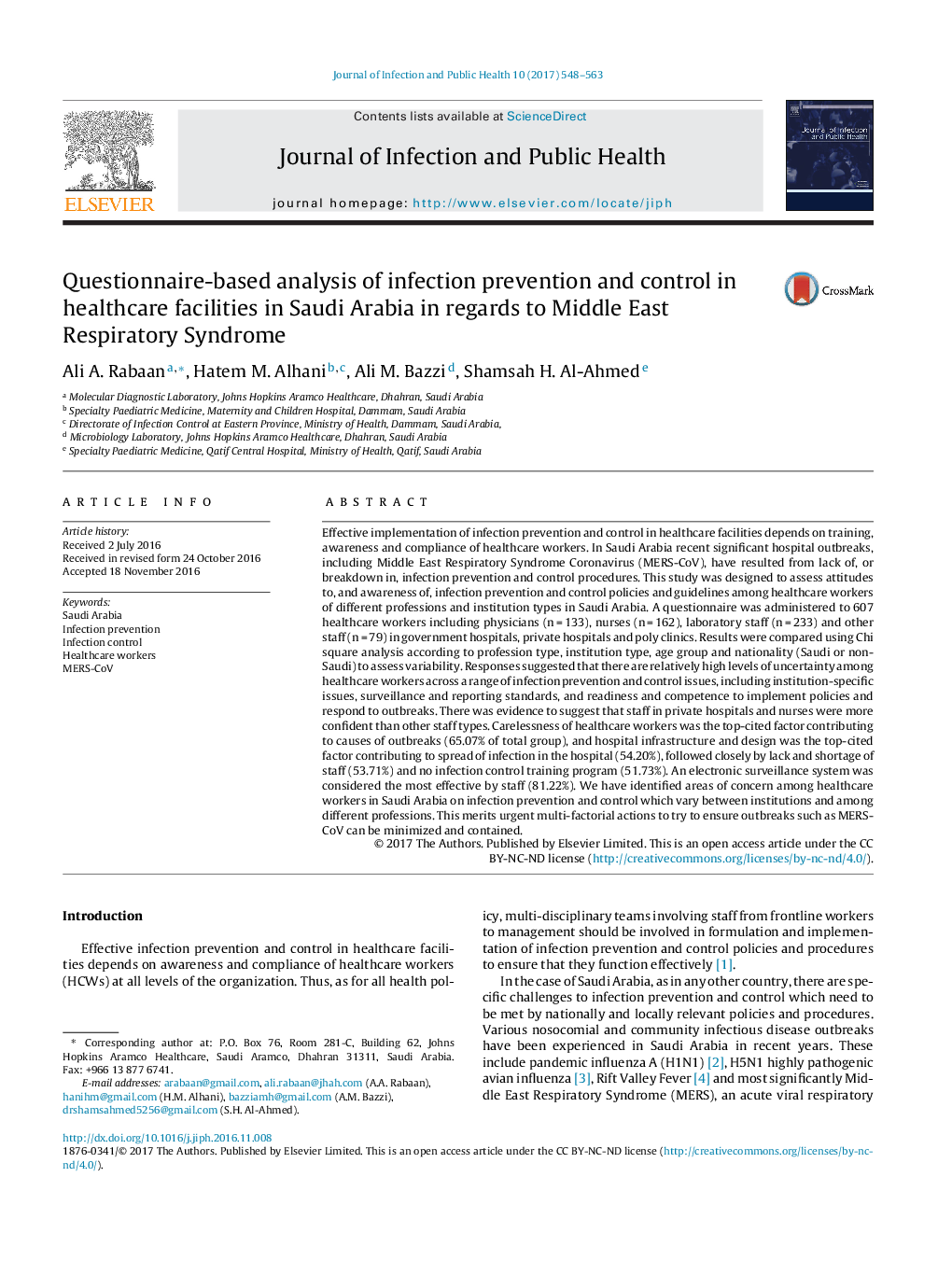| کد مقاله | کد نشریه | سال انتشار | مقاله انگلیسی | نسخه تمام متن |
|---|---|---|---|---|
| 5672745 | 1593371 | 2017 | 16 صفحه PDF | دانلود رایگان |
Effective implementation of infection prevention and control in healthcare facilities depends on training, awareness and compliance of healthcare workers. In Saudi Arabia recent significant hospital outbreaks, including Middle East Respiratory Syndrome Coronavirus (MERS-CoV), have resulted from lack of, or breakdown in, infection prevention and control procedures. This study was designed to assess attitudes to, and awareness of, infection prevention and control policies and guidelines among healthcare workers of different professions and institution types in Saudi Arabia. A questionnaire was administered to 607 healthcare workers including physicians (n = 133), nurses (n = 162), laboratory staff (n = 233) and other staff (n = 79) in government hospitals, private hospitals and poly clinics. Results were compared using Chi square analysis according to profession type, institution type, age group and nationality (Saudi or non-Saudi) to assess variability. Responses suggested that there are relatively high levels of uncertainty among healthcare workers across a range of infection prevention and control issues, including institution-specific issues, surveillance and reporting standards, and readiness and competence to implement policies and respond to outbreaks. There was evidence to suggest that staff in private hospitals and nurses were more confident than other staff types. Carelessness of healthcare workers was the top-cited factor contributing to causes of outbreaks (65.07% of total group), and hospital infrastructure and design was the top-cited factor contributing to spread of infection in the hospital (54.20%), followed closely by lack and shortage of staff (53.71%) and no infection control training program (51.73%). An electronic surveillance system was considered the most effective by staff (81.22%). We have identified areas of concern among healthcare workers in Saudi Arabia on infection prevention and control which vary between institutions and among different professions. This merits urgent multi-factorial actions to try to ensure outbreaks such as MERS-CoV can be minimized and contained.
Journal: Journal of Infection and Public Health - Volume 10, Issue 5, SeptemberâOctober 2017, Pages 548-563
